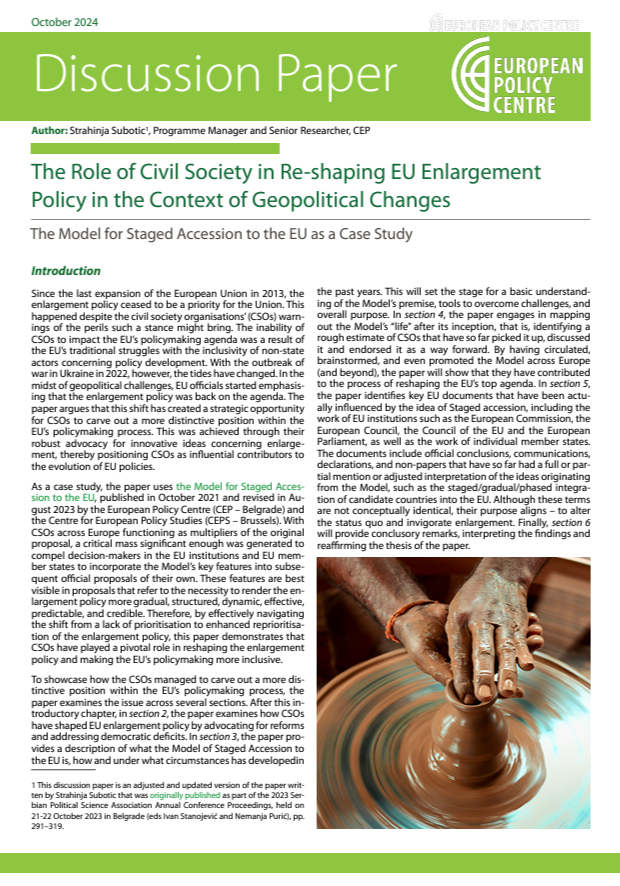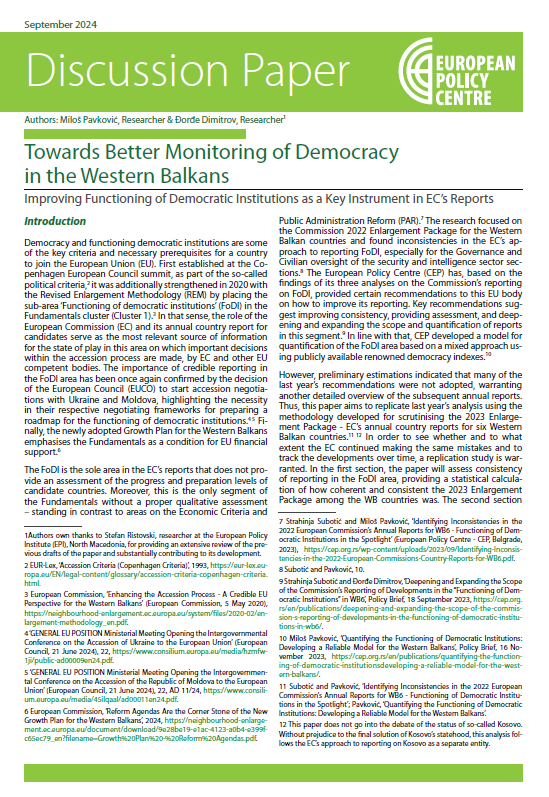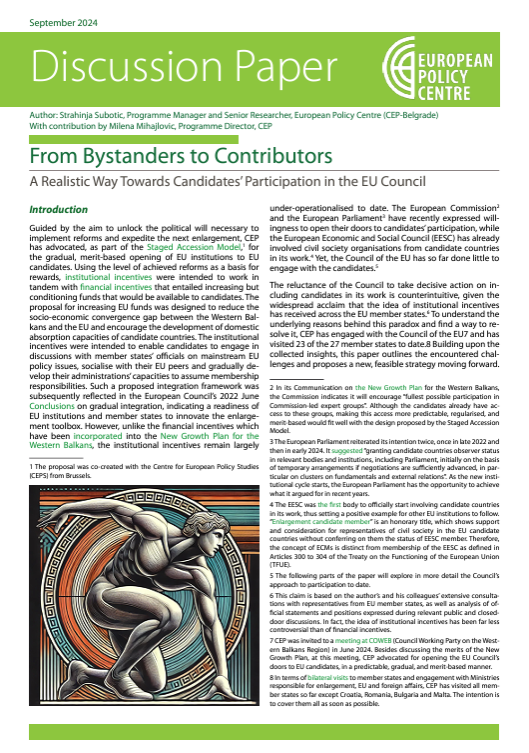Headquarters: Svetog Nauma 7, 11000
Office address: Đorđa Vajferta 13, 11000
Phone:: +381 11 4529 323
North Macedonia is a prime example of a candidate burdened by disputes with its neighbouring European Union (EU) member state(s). As a result of (mis)use of the veto power, the start of accession talks with the EU had been halted for over 14 years. In lack of continuous impetus, North Macedonia has lingered to deliver credible reforms and sustainable reforms and prove that it is only the unresolved bilateral matters standing on its way to become a full-fledged EU member.
Even after two and a half decades of formal engagement with the EU, the European Commission assesses that the country is moderately prepared in terms of the requirements set in the Copenhagen criteria. This paper explores the application of the Staged accession model (the Model) and its features in respect to its ability to address the specificities of North Macedonia’s accession path to the EU. Section I addresses the shortcomings of the current EU approach under the revised methodology.
Section II discusses whether and how the Model can contribute to addressing the country specific issues. A stakeholder analysis that identifies and discusses the importance of relevant actors, political parties and institutions who might be favouring or opposing the Model is elaborated in Section III. The paper concludes with a discussion on the next steps North Macedonia has to take in order to enter stage I and stage II as foreseen in the Model.
This paper is part of the National Issue Paper Series developed within the project “Support for further development of the model of the Western Balkans staged accession to the European Union“ implemented by the European Policy Centre (CEP – Belgrade) and the Centre for European Policy Studies (CEPS – Brussels). The Project is funded by the Open Society Foundations (OSF).
The author of this publication is Stefan Ristovski, European Policy Institute, Skopje.


